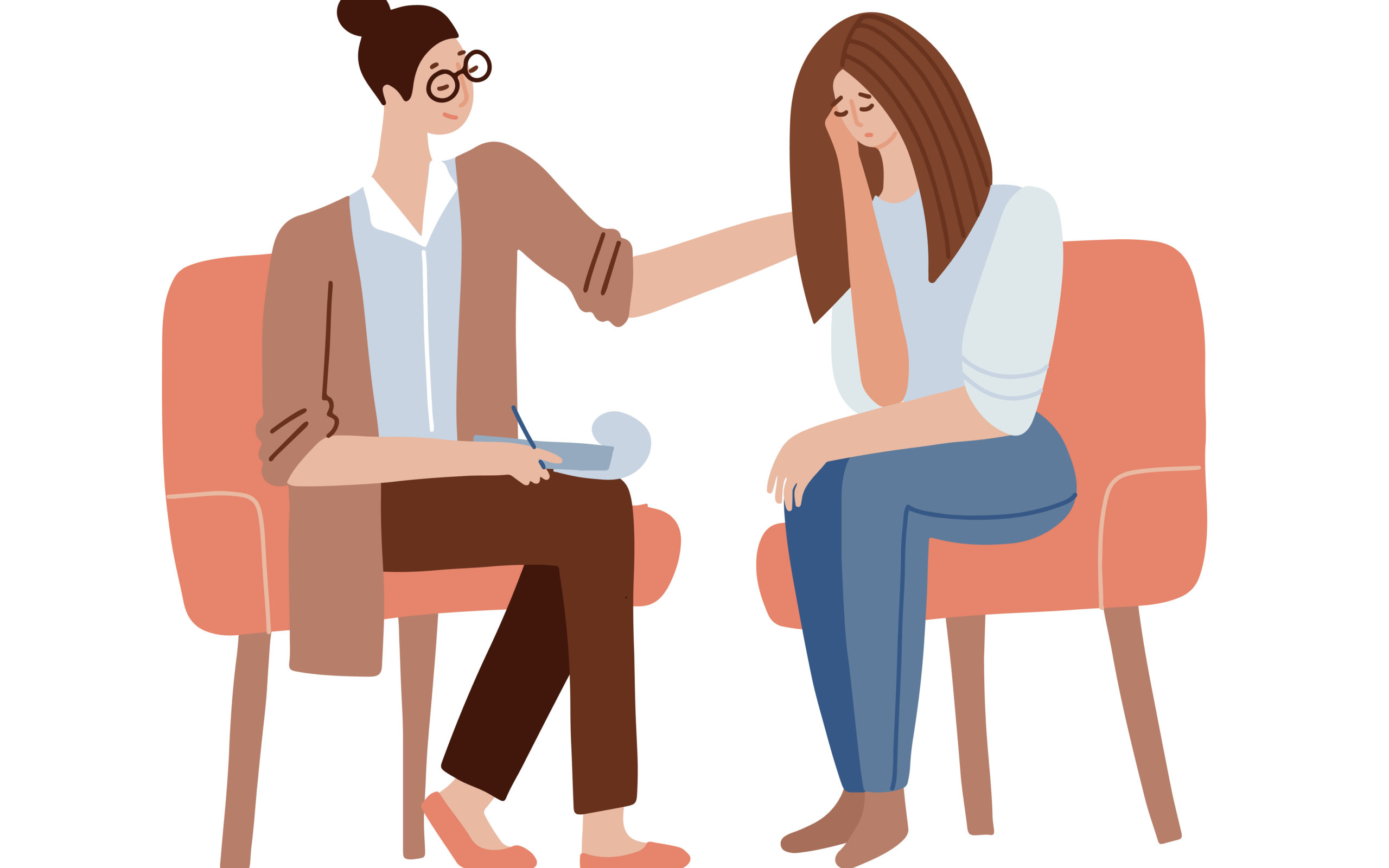Finding the Best Psychologist in Delhi: An Overview to Your Mental Health Trip
Finding the Best Psychologist in Delhi: An Overview to Your Mental Health Trip
Blog Article
Psych Treatment: A Comprehensive Guide to End Results and techniques

Cognitive-Behavioral Therapy
Cognitive-Behavioral Therapy (CBT) is an extensively utilized psychotherapeutic strategy that focuses on determining and modifying inefficient reasoning and behavior patterns. Established in the 1960s by Aaron T. Beck, CBT combines cognitive and behavior concepts to attend to various psychological health and wellness concerns, including clinical depression, anxiety, and stress-related conditions.
Techniques such as cognitive restructuring, exposure treatment, and skill-building workouts are frequently utilized. Cognitive restructuring involves tough and modifying unfavorable thought patterns, while direct exposure treatment aims to decrease anxiety and anxiousness through steady exposure to feared situations or objects.
Evidence-based research sustains the effectiveness of CBT for a vast array of mental problems - Best Psychologist in Delhi. Its emphasis on ability purchase and self-help strategies equips clients to proceed development independently after treatment concludes. The flexibility and efficiency of CBT have actually made it a foundation in contemporary psychotherapeutic method
Psychodynamic Approaches
Rooted in the very early theories of Sigmund Freud, psychodynamic techniques focus on discovering the unconscious mind and its impact on behavior and feelings. These approaches aim to reveal covert ideas and feelings that might be driving maladaptive actions and mental distress. Central to this strategy is the idea of internal conflict, usually coming from unsolved past experiences, specifically those from youth.
Therapists making use of psychodynamic techniques utilize several essential approaches, including complimentary organization, where patients are motivated to speak openly to expose subconscious product, and dream analysis, which analyzes the latent web content of desires. Additionally, the expedition of transference and countertransference dynamics within the therapeutic relationship is critical. These interactions can supply understandings into the individual's internal world and relational patterns.
Psychodynamic treatment is commonly longer-term compared to various other methods, supplying a thorough and deep understanding of the individual's subconscious. Research suggests that it can be particularly effective for intricate psychological health issues, such as character problems and persistent depression. By fostering self-awareness and psychological understanding, psychodynamic treatment looks for to bring subconscious material to awareness, allowing people to attain significant and enduring modification in their lives.
Humanistic Methods
Building on the foundations laid by psychodynamic methods, humanistic methods use an unique point of view concentrated on specific possible and self-actualization. Coming from in the mid-20th century, these methods focus on the inherent goodness and development possibility of individuals, stressing an all natural view of human experience. Secret numbers such as Carl Rogers and Abraham Maslow have actually substantially affected this healing strategy, which includes methods like client-centered therapy and Gestalt therapy.
Client-centered treatment, created by Rogers, plays an essential function in humanistic methods. It relies on the specialist giving an environment of genuine favorable regard, compassion, and harmony. This promotes a safe room for customers to explore their feelings and experiences without judgment, promoting self-discovery and personal growth. The specialist's function is more of a see this facilitator than an authority, motivating customers to harness their inner resources for recovery.
Gestalt therapy, an additional essential humanistic method, stresses present minute understanding and the integration of mind and body. By concentrating on the "present moment," customers gain higher insight into their present emotions and habits. Techniques such as role-playing and directed visualization are commonly employed to assist customers acquire a much deeper understanding of themselves, eventually leading to boosted self-awareness and fulfillment.
Integrative Therapies
Integrative treatments stand for a synthesis of various therapeutic methods customized to meet the distinct More Help requirements of each customer. This strategy acknowledges the complexity of human psychology and the diverse nature of psychological wellness issues. By combining aspects from various colleges of psychiatric therapy-- such as cognitive-behavioral treatment (CBT), psychodynamic treatment, and humanistic approaches-- integrative therapies provide a more versatile and all natural therapy standard.
Practitioners of integrative therapy assess each client's particular requirements, signs, and individual history to create a tailored therapy strategy. This personalized technique best site improves the capacity for therapeutic success by dealing with the root causes of psychological distress and advertising general wellness. Methods might include mindfulness workouts, cognitive restructuring, and emotional processing, each selected to target various elements of the client's issues.
In addition, integrative treatments highlight the therapeutic partnership, checking out the client-therapist bond as an essential element of effective therapy. This connection fosters a supportive setting where clients really feel risk-free to explore and resolve their issues. The versatility of integrative therapies makes them appropriate for a broad variety of conditions, including anxiousness, depression, injury, and interpersonal troubles, thus increasing their applicability and performance in diverse professional settings.

Measuring Treatment Outcomes
Reviewing the efficiency of psychotherapy is critical for both customers and clinicians to make certain that the treatment is generating the preferred end results. To accomplish this, numerous techniques and devices are utilized to determine therapy results systematically. Standardized evaluation tools, such as the Beck Anxiety Supply (BDI) and the Generalized Anxiousness Problem 7 (GAD-7), give quantitative information on symptom intensity and changes gradually.
Along with standardized devices, qualitative approaches like client self-reports and scientific interviews provide beneficial insights into the individual experiences and regarded progress of clients. Consistently scheduled examinations, typically at the beginning, navel, and end of treatment, help in tracking the trajectory of enhancement or determining locations requiring change.
Outcome measurement is not limited to signs and symptom reduction; it also incorporates practical renovations in day-to-day live, such as better interpersonal relationships, enhanced work efficiency, and improved general health. Modern innovations in electronic wellness have actually presented mobile applications and on the internet platforms that assist in real-time tracking and responses, additionally fine-tuning the evaluation process.
Eventually, a thorough approach to measuring therapy results makes certain that healing treatments are reliable, reliable, and tailored to meet the individual demands of customers, consequently enhancing the overall therapeutic experience.
Verdict
Psychiatric therapy uses a diverse range of techniques intended at addressing details psychological health and wellness issues and boosting general wellness. Cognitive-Behavioral Treatment and psychodynamic strategies target inefficient thoughts and subconscious influences, respectively. Humanistic techniques concentrate on personal development and self-actualization, while integrative therapies combine numerous techniques for customized treatment strategies. Examining therapy end results with standard evaluations and qualitative methods guarantees a comprehensive understanding of performance, ultimately leading clients towards enduring mental health and wellness improvements.
From the organized approach of Cognitive-Behavioral Therapy (CBT) to the deep exploration of the subconscious in psychodynamic therapy, each approach brings unique benefits. Its focus on skill purchase and self-help techniques empowers customers to continue development independently after therapy ends (Best Psychologist in Delhi). Trick figures such as Carl Rogers and Abraham Maslow have considerably affected this healing approach, which encompasses methods like client-centered therapy and Gestalt therapy

Report this page